02 Dec How Social Networks Drive Billions of Search Visits with SEO via @Kevin_Indig
Growth experts at social networks don’t think about SEO the way we might do for a SaaS company.
They face a unique set of challenges, such as getting Google to crawl and index billions of pages or render heavy JavaScript frameworks, and that takes a different mindset.
While only a small subset of sites deal with these challenges, there is a lot to learn from observing how social networks excel at SEO.
In this post, you’ll learn how Facebook and LinkedIn drive billions of search visits and how Instagram has a significant competitive advantage over TikTok.
I will leave Twitter out because of their partnership with Google, but cover Snapchat’s bare potential to drive more adoption through SEO.
Ironically, social networks don’t get social traffic.
They get traffic from direct (majority), organic (second), and referral (third) channels, and rank predominantly for brand names like CNN, Walmart, and Google.
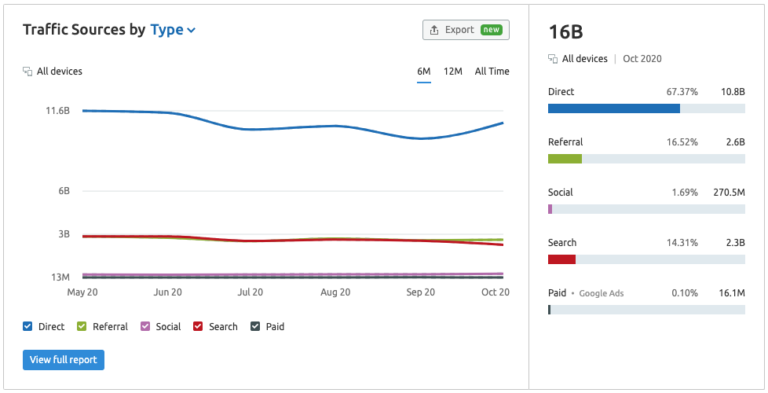 Facebook’s traffic sources
Facebook’s traffic sources
The SEO professionals at Facebook are doing a great job at growing organic traffic (33 million top 10 keywords in October).
Facebook raked in 16 billion global visits in October, of which 10.8 billion came from direct and 2.3 billion from search (data from SEMrush).
Keep in mind that this captures only a fraction of users because most use the Facebook app.
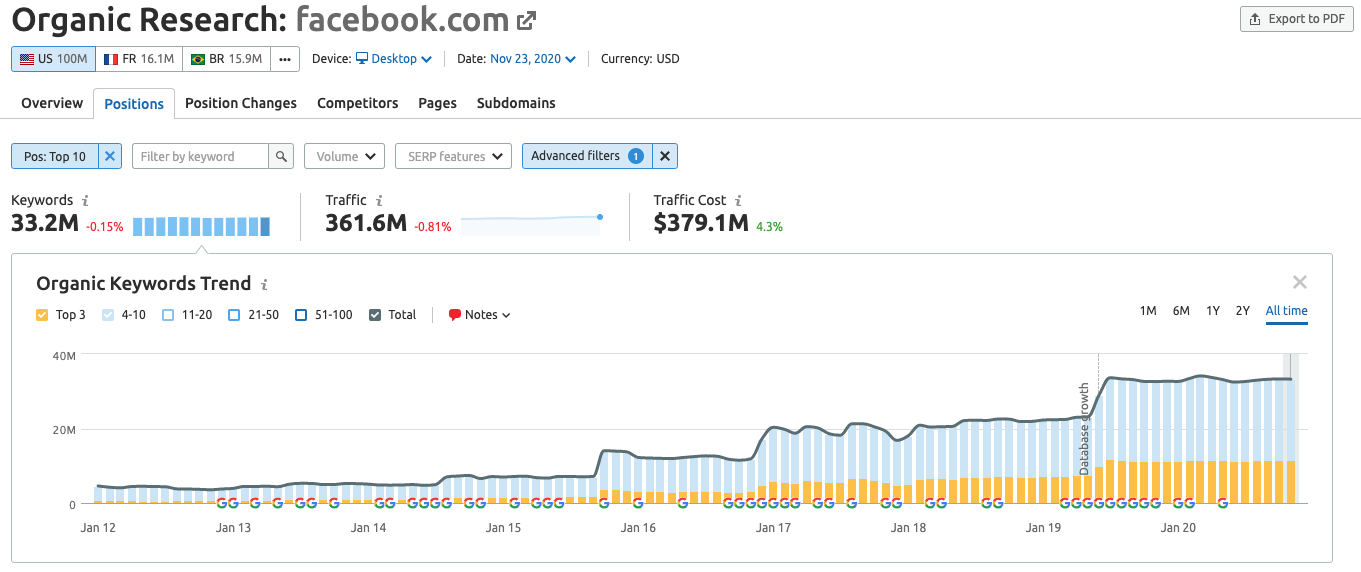 Facebook’s top 10 keywords
Facebook’s top 10 keywords
Facebook’s main challenge is making sure all pages are indexed and crawled.
The problem is that Google won’t create a Facebook account and crawl all posts, profiles, and pages.
As smart SEO pros know, the solution is HTML sitemaps or “indices” of the most important content.
Facebook links to those indices in the footer of the homepage.
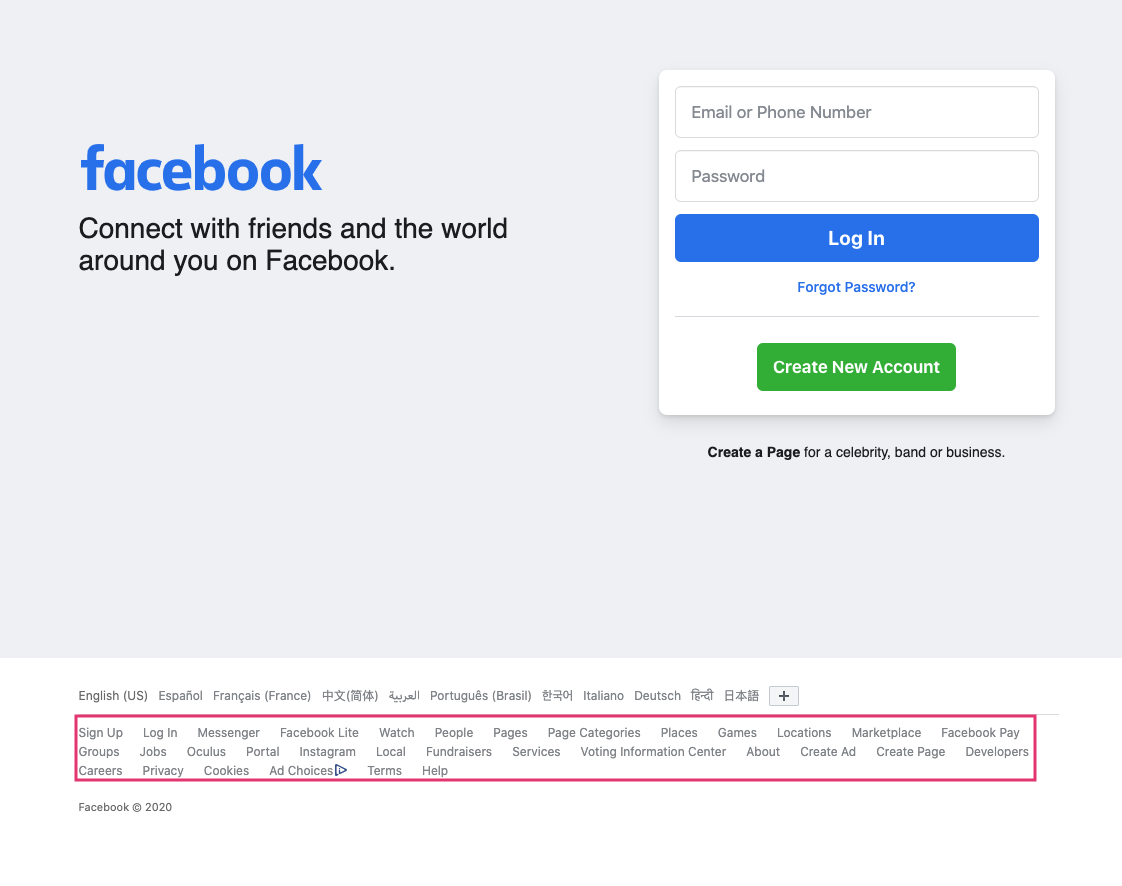 Facebook’s homepage footer links
Facebook’s homepage footer links
Facebook has indices for more than 4 million popular pages.
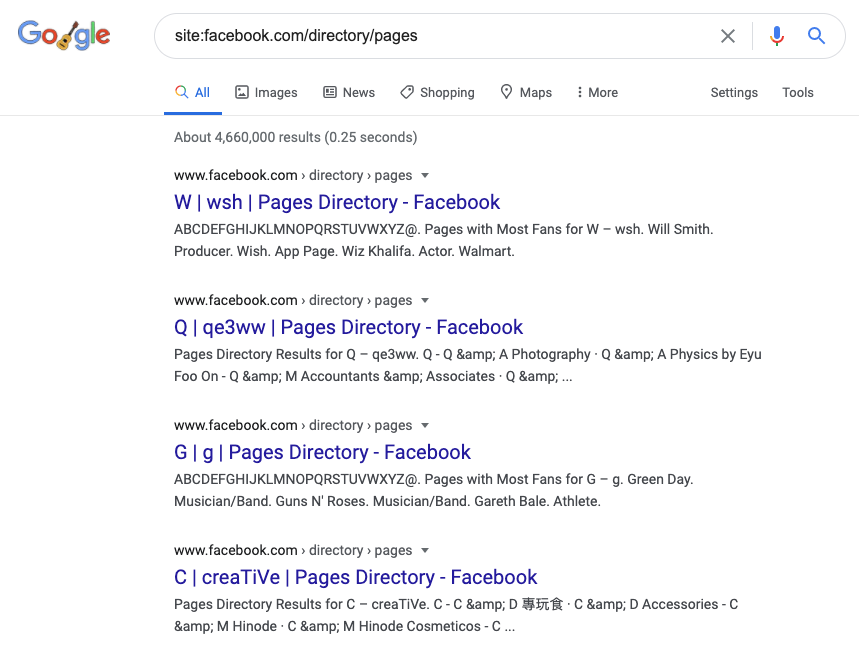 Facebook’s page directories in Google’s index
Facebook’s page directories in Google’s index
Each of them carries a massive amount of internal links.
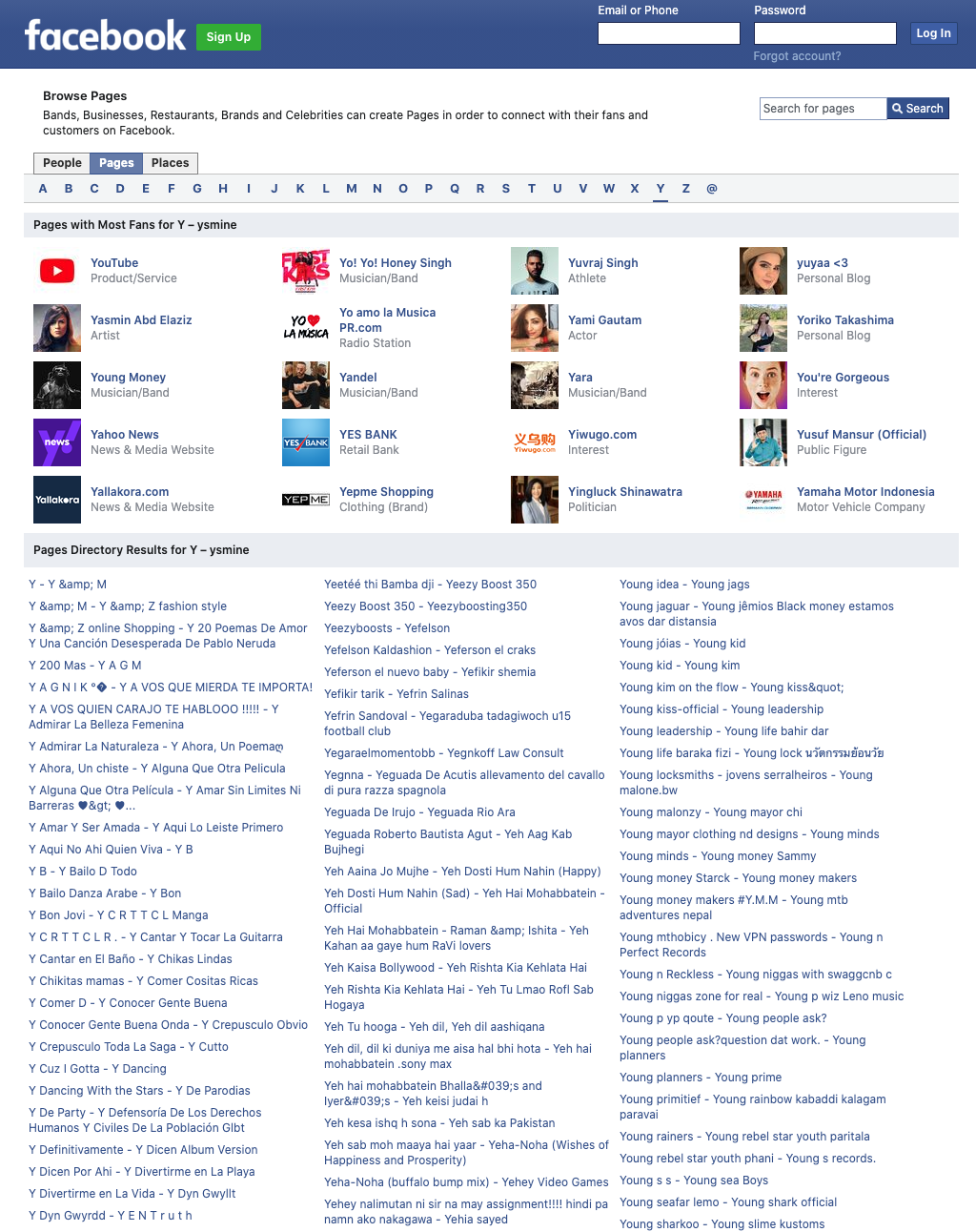 A Facebook page index example.
A Facebook page index example.
Really smart SEO professionals also create cross-categories in their taxonomy (the logic by which information is structured).
Facebook hasn’t just grouped pages alphabetically, but also by business category.
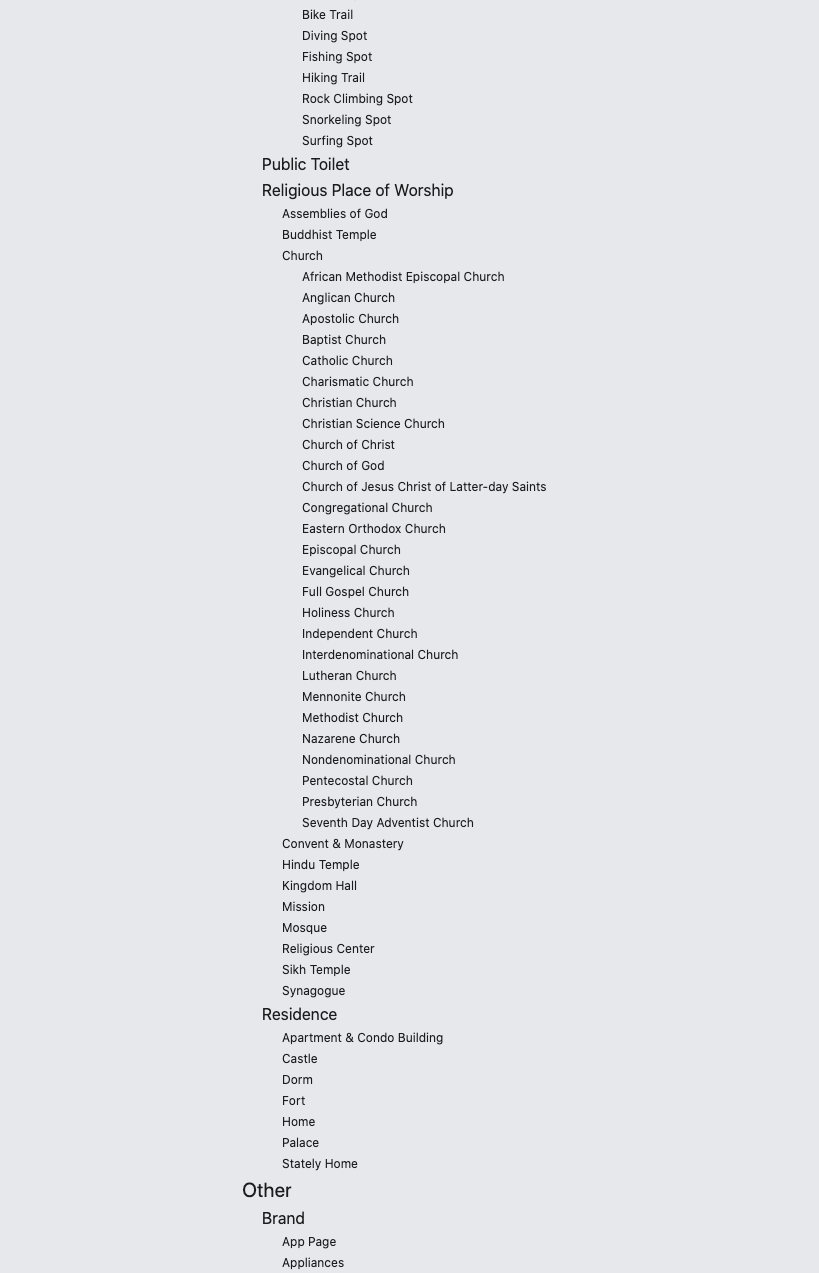 Facebook’s business categories
Facebook’s business categories
Those same directories exist for over 1.9 million people, 3.2 million places, 340,000 groups, 765,000 jobs, 63,000 games, 83,000 local lists, 1.5 million businesses, and 1,300 fundraisers.
Social networks are two-sided marketplaces of users and ads.
LinkedIn has a SaaS offering as well, which is not the only way the job network sticks out: LinkedIn doesn’t just link to indices but to directories in the footer.
 LinkedIn’s footer links to directories
LinkedIn’s footer links to directories
They have 27,000 of them and link to subdirectories like /salary/, /school/, or /jobs/.
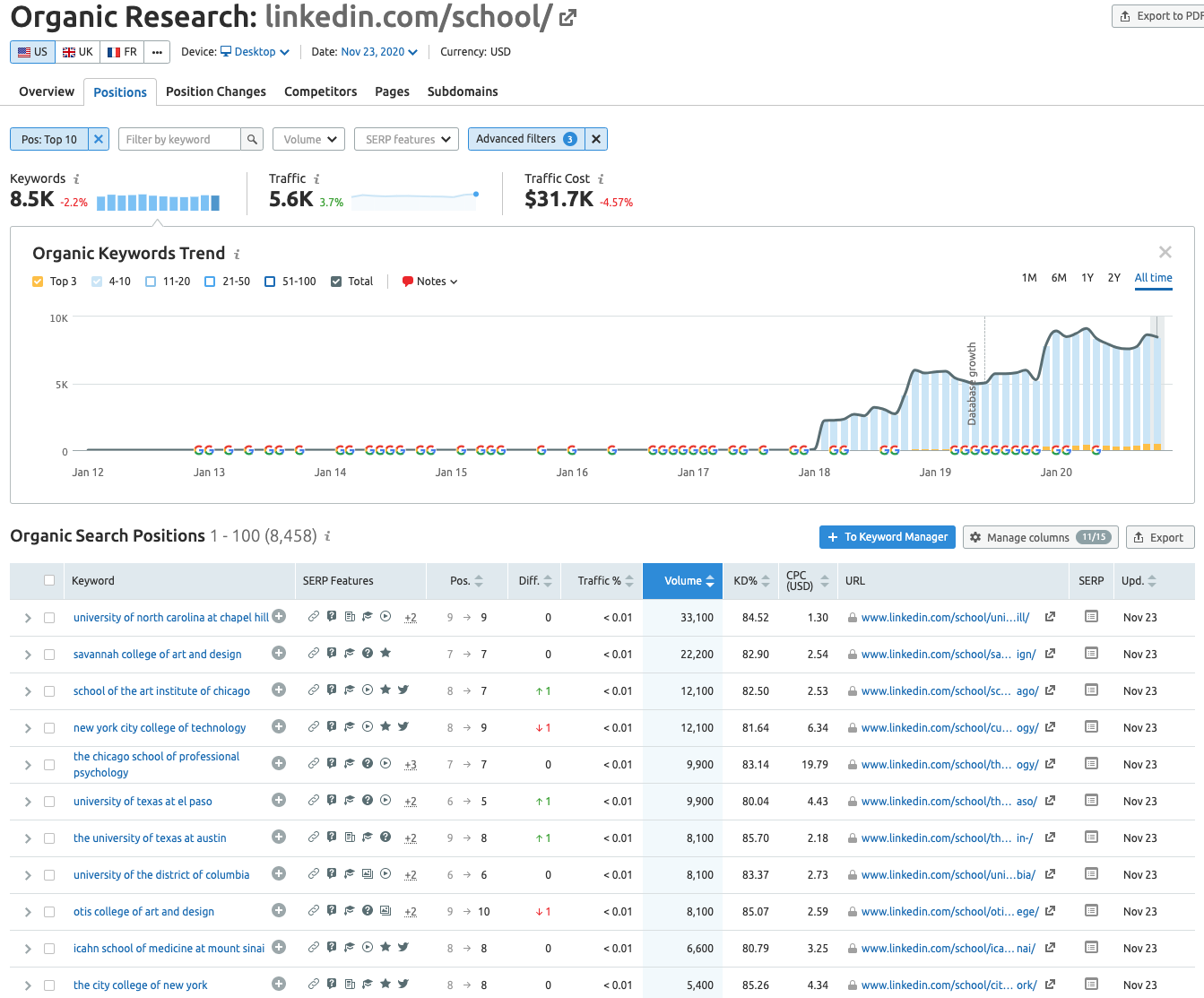 LinkedIn’s school directory
LinkedIn’s school directory
LinkedIn doesn’t get as much traffic as Facebook – the market is smaller – but grew steadily over the last years and achieved an organic traffic share twice as high as Facebook’s (29% versus 14%).
Instagram Versus Tiktok
Even though TikTok has almost as many users as Instagram, its organic traffic doesn’t come close.
Even when comparing TikTok to Youtube, the same outcome applies.
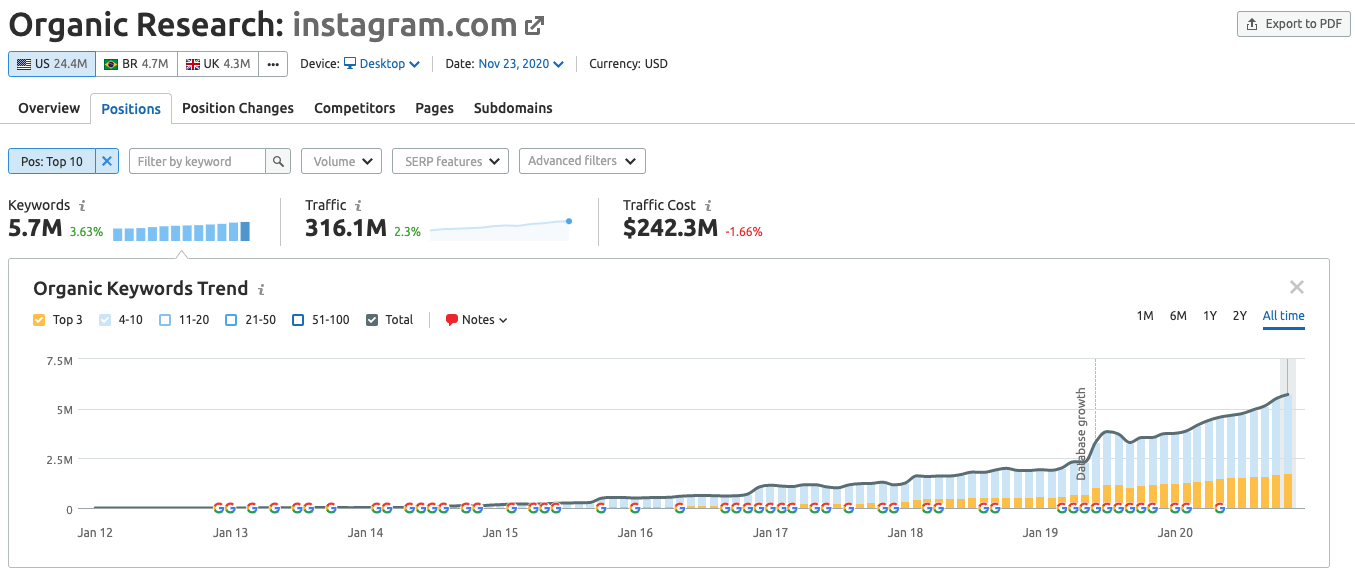 Instagram’s top 10 keywords
Instagram’s top 10 keywords
Instagram follows the same strategy as Facebook and LinkedIn for indexing its massive corpus of pages.
They go even further and put Googlebot in front of unique taxonomy: cities and hashtags.
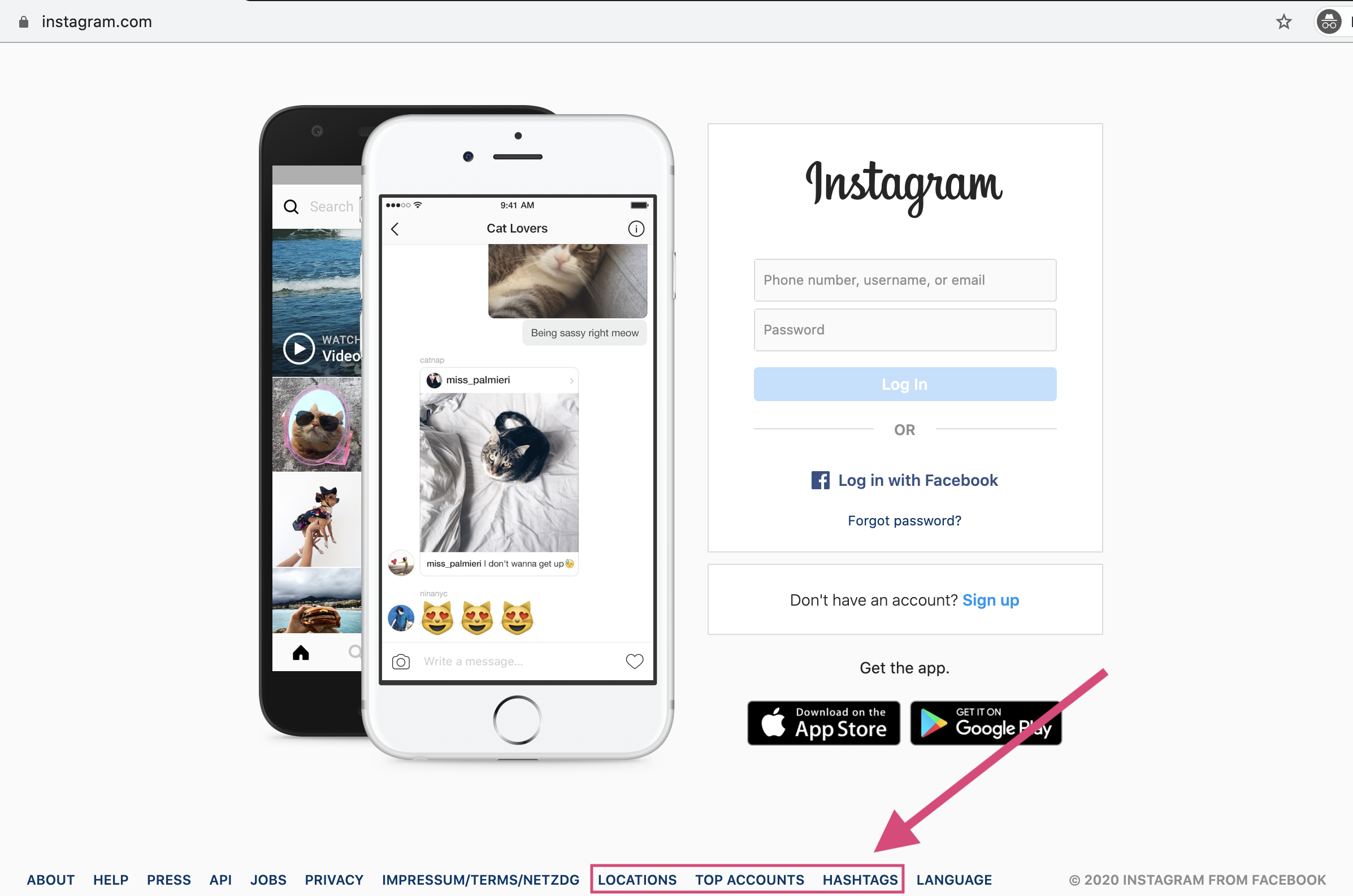 Instagram’s homepage
Instagram’s homepage
TikTok fails to adapt its framework to Google’s rendering requirements.
The result is easy to see when you visit the app with JavaScript turned off: Google can’t crawl, index, and rank TikTok’s content.
 Tik Tok’s discover page (JavaScript turned off)
Tik Tok’s discover page (JavaScript turned off)
Snapchat
Where is Snapchat in all of this?
I highly respect Snapchat for its grit and innovation.
However, it’s an anti-example of social network SEO.
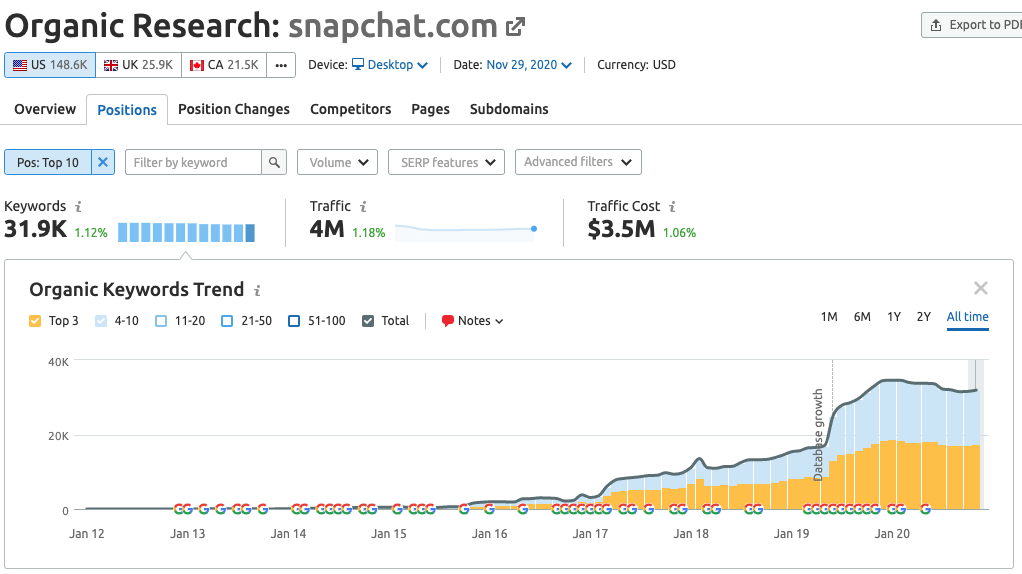 Snapchat’s top 10 keywords
Snapchat’s top 10 keywords
Though snapchat.com has grown over the recent years, a lot comes from the /add subdirectory, which only shows profile QR codes.
Snapchat could add a lot more information about its users to profile pages and give search engines more information to understand their relevance.
That’s one reason why Snapchat ranks below Instagram and Facebook for high-volume name searches.
 Snapchat’s ranking for “Ana Lorde”
Snapchat’s ranking for “Ana Lorde”
Another missed opportunity is the story feed, which has no taxonomy structure and no internal linking modules.
It’s just a plain feed that doesn’t give Google much to index, render, and rank.
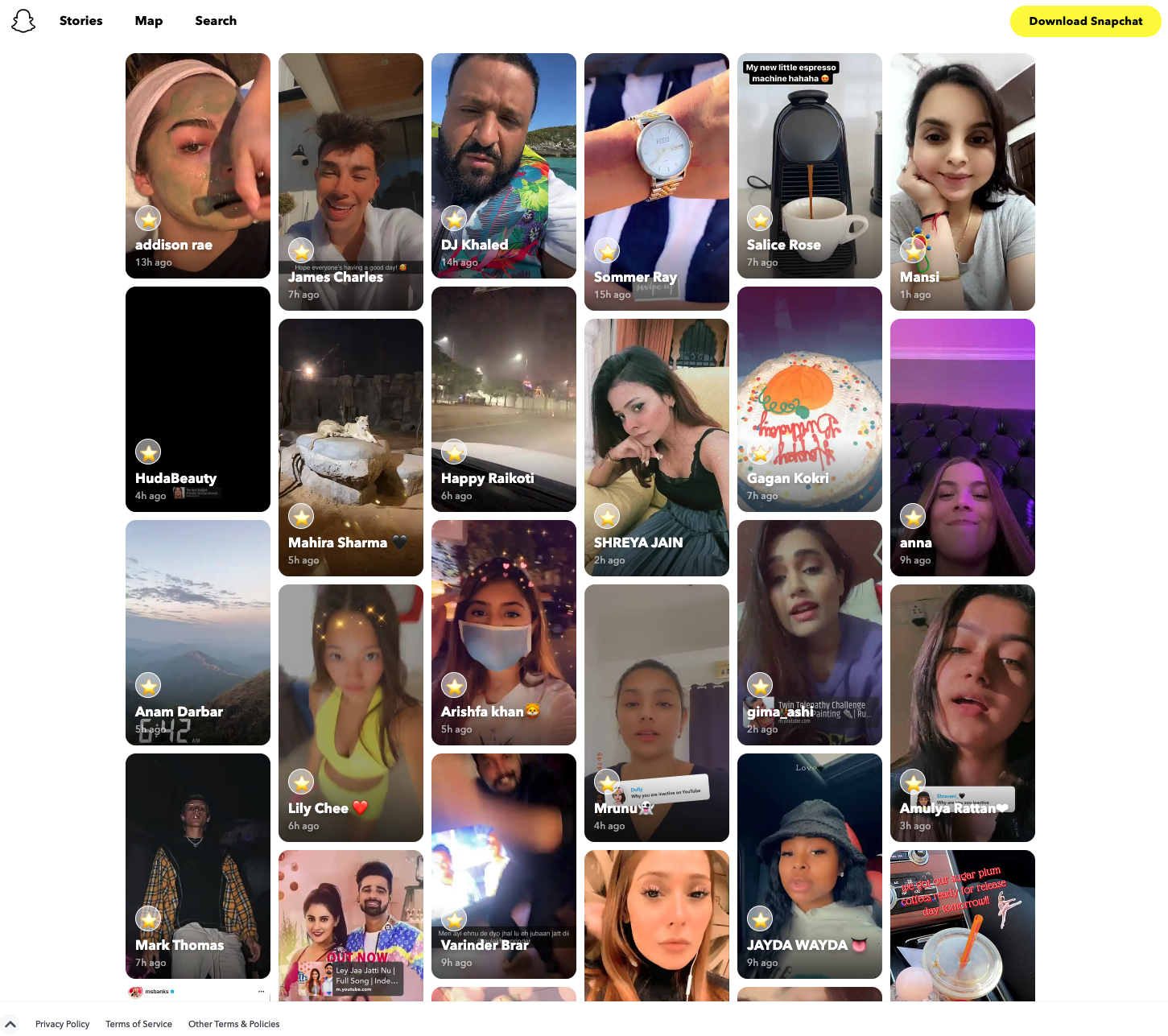 Snapchat’s stories feed
Snapchat’s stories feed
Snapchat could go as far as to create a directory out of its maps feature (maps.snapchat.com) and list local stories by city.
I think it’s a gold mine and could drive massive adoption of the app.
Organic Growth: A Different Set of Principles
The thinking and execution of organic traffic growth for sites like social networks are what I call “organic growth” (organic traffic + growth).
Instead of cheap “growth hacks,” organic growth is a specific set of principles that apply to companies with user-generated content or a public “inventory” (products or information).
Indexing millions of pages is only half the race.
The other half is dealing with rendering frameworks that scale apps over billions of pages.
It involves close work with engineers, product managers, designers, and running experiments that impact the logged-out user and machine experience.
And, it demands a tight set of KPIs.
Observing, understanding, and learning such principles allows us to find and scale growth levers for our own sites.
More Resources:
- How to Get Organic Traffic That Isn’t From Google
- 9 Expert Tips to Earn Traffic from Instagram
- How to Dominate Social Media Marketing: A Complete Strategy Guide
Image Credits
All screenshots taken by author, December 2020
Sorry, the comment form is closed at this time.